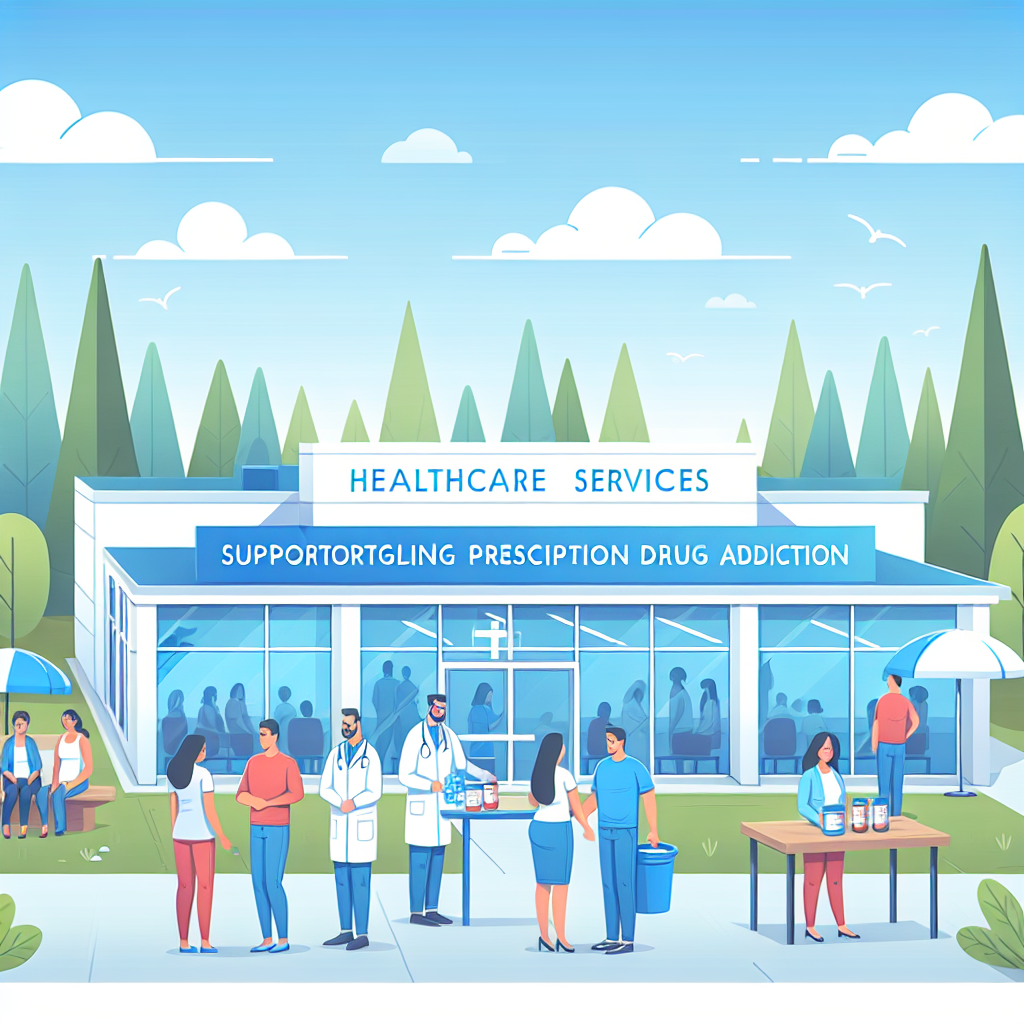-
Table of Contents
“Unlock Recovery: Discover Insurance-Covered Addiction Services Today!”
Introduction
Addiction recovery services are often covered by insurance, though the extent of coverage can vary significantly depending on the specific insurance plan and provider. Many health insurance policies, including those provided through employer-sponsored plans and government programs like Medicaid and Medicare, offer some level of coverage for substance abuse treatment. This can include detoxification, inpatient rehabilitation, outpatient therapy, counseling, and medication-assisted treatment. The Affordable Care Act (ACA) has also mandated that mental health and substance use disorder services are essential health benefits, which means that many insurance plans are required to cover these services. However, the specifics of what is covered, the duration of coverage, and the out-of-pocket costs can differ, so it is important for individuals to review their insurance policies and consult with their insurance providers to understand the details of their coverage for addiction recovery services.
Understanding Insurance Coverage for Addiction Recovery Services
Navigating the path to recovery from addiction is a journey that requires courage, determination, and support. One of the critical aspects of this journey is understanding how to finance the necessary treatment and services. Many individuals and families find themselves asking, “Are addiction recovery services covered by insurance?” The answer to this question can significantly impact the accessibility and affordability of the care needed to overcome addiction.
In recent years, there has been a growing recognition of addiction as a medical condition that requires comprehensive treatment. This shift in perspective has led to changes in insurance policies, making it more likely for addiction recovery services to be covered. The Affordable Care Act (ACA), enacted in 2010, played a pivotal role in this transformation. The ACA mandates that insurance plans cover mental health and substance use disorder services as essential health benefits. This means that many insurance plans are now required to provide coverage for addiction treatment, including inpatient and outpatient care, counseling, and medication-assisted treatment.
However, the extent of coverage can vary widely depending on the specific insurance plan and provider. Some plans may cover a significant portion of the costs, while others might have more limited benefits. It is crucial for individuals seeking treatment to thoroughly review their insurance policies and understand what is covered. This can often be a daunting task, but many treatment centers have dedicated staff who can assist with verifying insurance benefits and navigating the complexities of coverage.
Moreover, it is important to recognize that different types of addiction recovery services may be covered to varying degrees. For instance, inpatient rehabilitation programs, which provide intensive, round-the-clock care, might be covered differently than outpatient programs, which allow individuals to receive treatment while continuing to live at home. Similarly, coverage for counseling and therapy sessions, which are integral components of recovery, can also differ. Medication-assisted treatment, which combines medications with counseling and behavioral therapies, is another area where coverage can vary.
Despite these variations, the trend towards greater insurance coverage for addiction recovery services is a positive development. It reflects a broader understanding of addiction as a chronic disease that requires ongoing management and support. This shift is not only beneficial for those directly affected by addiction but also for society as a whole. By making treatment more accessible, we can reduce the long-term costs associated with untreated addiction, such as healthcare expenses, lost productivity, and criminal justice involvement.
For those embarking on the journey to recovery, it is essential to remain hopeful and proactive. Understanding insurance coverage is a critical step, but it is equally important to seek out the resources and support available. Many communities offer support groups, hotlines, and other services that can provide guidance and encouragement. Additionally, treatment centers often have financial counselors who can help explore options for covering costs, including sliding scale fees, payment plans, and scholarships.
In conclusion, while the question of whether addiction recovery services are covered by insurance can be complex, the overall trend is towards greater coverage and support. This progress is a testament to the growing recognition of addiction as a treatable condition and the importance of providing accessible care. By staying informed and seeking out available resources, individuals and families can find the support they need to embark on the path to recovery with confidence and hope.
Navigating Insurance Policies for Addiction Treatment
Navigating the labyrinth of insurance policies can be daunting, especially when seeking addiction recovery services. However, understanding the nuances of insurance coverage can be a beacon of hope for those on the path to recovery. The good news is that many insurance plans do cover addiction treatment, thanks to legislative advancements and a growing recognition of addiction as a medical condition rather than a moral failing.
The Affordable Care Act (ACA) has been instrumental in expanding coverage for addiction treatment. Under the ACA, substance use disorder services are considered essential health benefits, which means that all health insurance plans sold on the Health Insurance Marketplace must cover them. This includes a range of services such as detoxification, inpatient rehabilitation, outpatient counseling, and medication-assisted treatment. The Mental Health Parity and Addiction Equity Act (MHPAEA) further supports this by requiring that insurance coverage for mental health and substance use disorders be no more restrictive than coverage for medical and surgical conditions.
Despite these legislative protections, the extent of coverage can vary significantly from one insurance plan to another. It is crucial to thoroughly review your policy or speak with an insurance representative to understand what is covered. Some plans may cover only a portion of the treatment costs, leaving you responsible for co-pays or deductibles. Others might have limitations on the duration of treatment or the types of services covered. Being well-informed about your policy can help you avoid unexpected expenses and ensure that you receive the necessary care.
Moreover, navigating insurance policies often involves understanding the difference between in-network and out-of-network providers. In-network providers have agreements with insurance companies to offer services at a reduced rate, which can significantly lower out-of-pocket costs. On the other hand, out-of-network providers do not have such agreements, and their services can be more expensive. It is advisable to choose in-network providers whenever possible to maximize your insurance benefits.
Another critical aspect to consider is the pre-authorization requirement. Many insurance plans require pre-authorization for addiction treatment services, meaning you must obtain approval from your insurance company before starting treatment. This process can be time-consuming, but it is essential to ensure that your treatment will be covered. Failing to obtain pre-authorization can result in denied claims and substantial out-of-pocket expenses.
While the financial aspect of addiction treatment is a significant concern, it is equally important to focus on the broader goal of recovery. Insurance coverage can provide access to a comprehensive range of services that address not only the physical aspects of addiction but also the psychological and social factors. This holistic approach is crucial for long-term recovery and can include individual therapy, group counseling, family therapy, and support groups.
In conclusion, while navigating insurance policies for addiction treatment can be complex, it is a vital step in the journey to recovery. Legislative advancements have made significant strides in ensuring that addiction treatment is covered by insurance, but understanding the specifics of your policy is essential. By being informed and proactive, you can maximize your insurance benefits and access the comprehensive care needed for a successful recovery. Remember, the path to recovery is not just about overcoming addiction; it is about reclaiming your life and building a healthier, more fulfilling future.
Q&A
1. Are addiction recovery services typically covered by insurance?
– Yes, many insurance plans cover addiction recovery services, including therapy, counseling, and inpatient or outpatient treatment programs.
2. What types of addiction recovery services are commonly covered by insurance?
– Commonly covered services include detoxification, inpatient rehabilitation, outpatient treatment, medication-assisted treatment, and mental health counseling.
Conclusion
Addiction recovery services are often covered by insurance, particularly under the provisions of the Affordable Care Act (ACA) in the United States, which mandates that mental health and substance use disorder services be included as essential health benefits. Coverage can vary depending on the specific insurance plan, including the extent of services covered, such as inpatient and outpatient treatment, counseling, and medication-assisted treatment. It is important for individuals to review their insurance policies and consult with their providers to understand the specifics of their coverage.



